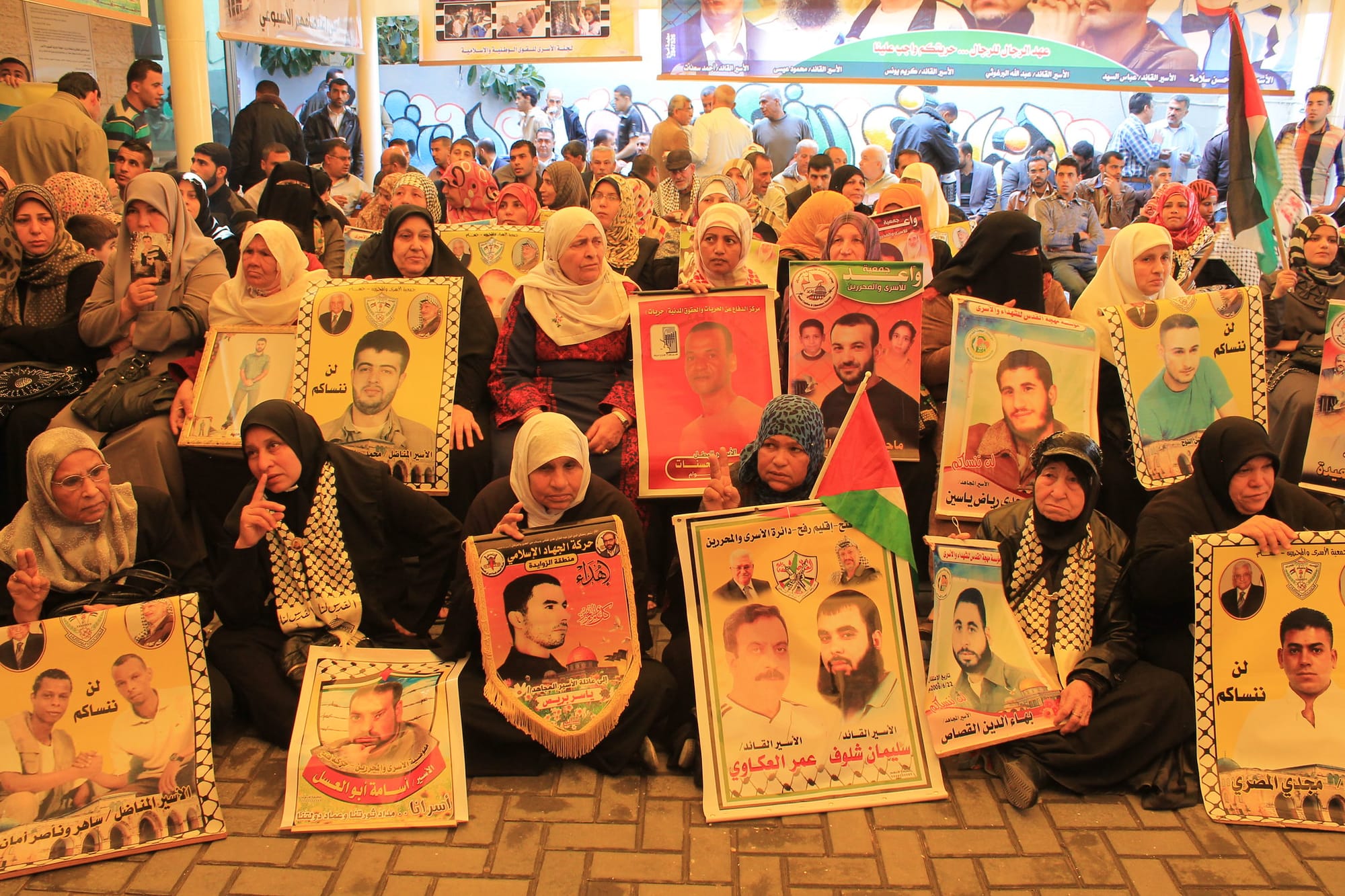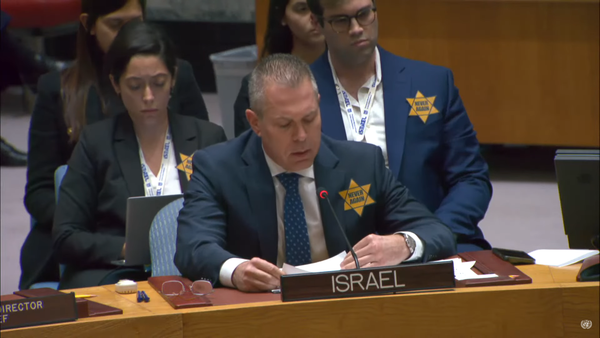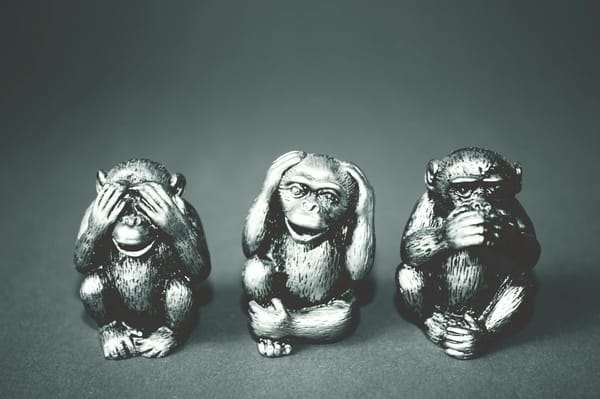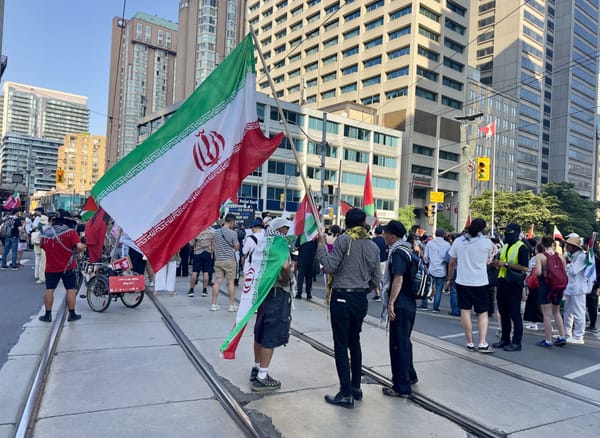Yesterday, both Canada and the United States designated Samidoun as a terrorist entity.
Samidoun, also known as the Palestinian Prisoner Solidarity Network, had been under fire from the Israel lobby and its allies among elected officials for years, but pressure ramped up after Oct. 7, 2023, as the group organized protests against Israel’s ongoing genocide in Gaza.
Both governments allege that Samidoun has “close links” with the Popular Front for the Liberation of Palestine (PFLP), which has been listed as a designated terrorist entity in Canada and the U.S. since 2003 and 2001, respectively.
Earlier today, Samidoun released a statement denying that they have any “material or organizational ties to entities listed on the terrorist lists of the United States, Canada or the European Union,” and arguing that they are being “targeted because of our political and vocal support for the Palestinian prisoners movement and the Palestinian people’s right to resistance.”
Samidoun’s designation as a terrorist entity received a great deal of media coverage, most of it simply repackaging the press releases issued by the two governments. These news articles missed quite a bit, but something in particular stuck out to me.
I reviewed original reporting from the Canadian Press, CBC News, Global News, The Globe and Mail, the National Post, Reuters, the Toronto Sun, and the Vancouver Sun, and found that none of them offered any background into the issue Samidoun was founded in 2011 to address: the plight of Palestinian prisoners and detainees.
This is an egregious omission that is especially indefensible given the detailed reports released in the past few months on the inhumane conditions Palestinians face in Israeli jails from B'Tselem, the United Nations Human Rights Office and the United Nations’ International Commission of Inquiry on the Occupied Palestinian Territory and Israel.
Given that the mainstream media unanimously ignored these credible investigations in their articles on Samidoun — which says it aids Palestinian prisoners by raising awareness and organizing campaigns for political change — I want to offer a brief overview of what the reports found. I encourage you to then read them in full.
To start, it’s important to note that while these reports focus on conditions in Israeli prisons and military detention sites since Oct. 7, 2023, the problems outlined in them have existed for far longer and impacted many more Palestinians. B'Tselem notes that hundreds of thousands of Palestinians have ended up in Israeli jails in general.
Over the past year or so, Israel has arrested more than 14,000 Palestinians, including children. According to the UN, those arrested and held have included “journalists, human rights defenders, medical staff, patients, United Nations staff and relatives of suspects.” The UN notes that many of the arrests “relate to apparent restrictions on Palestinians’ freedom of expression, opinion, association and assembly in the occupied West Bank, including East Jerusalem, as well as in Israel.”
About half of those arrested as of early July “were detained without trial, without being presented with the allegations against them, and without access to the right to defend themselves, in what Israel terms ‘administrative detention,’” notes the B'Tselem report. In addition, Israel has failed to disclose the names and locations of thousands of Gazans arrested.
B'Tselem notes that the places where these Palestinians are being held have been “converted into a network of camps dedicated to the abuse of inmates,” where “every inmate is intentionally condemned to severe, relentless pain and suffering” in what “operate as de-facto torture camps.”
Here is some of what Palestinian prisoners have faced:
- “The conditions include overcrowding, with some 13-20 male inmates for cells designed to accommodate five, and 10 female inmates in cells designed to accommodate six, forcing prisoners to sleep on the floor; severe food restrictions causing hunger and malnutrition; poor living, hygiene and health conditions, with reports of water running only one hour per day over several weeks; exposure to cold temperatures due to the confiscation of blankets and removal of windows panes in cold weather; and restrictions on recreational and outdoor activities.” - United Nations Human Rights Office (UNHRO) report
- “Their testimonies told of prolonged blindfolding, deprivation of food, sleep and water, and being subjected to electric shocks and being burnt with cigarettes. Some detainees said dogs were released on them, and others said they were subjected to waterboarding, or that their hands were tied and they were suspended from the ceiling.” - UNHRO press release
- “Detainees, including older individuals, taken to Sde Teiman for interrogation were tied in painful positions or bound to a screw placed high on a wall for hours, while blindfolded and suspended with their feet touching or barely touching the ground (‘shabah’). In one case, a detainee was left in that position for five to six hours as interrogators repeatedly subjected him to extreme changes in temperatures, using a strong fan and a heated lamp in alternation.” - United Nations’ International Commission of Inquiry on the Occupied Palestinian Territory and Israel (UNICI) report
- “Sexual violence was used as a means of punishment and intimidation from the moment of arrest and throughout detention, including during interrogations and searches. Acts of sexual violence documented by the Commission were motivated by extreme hatred towards and a desire to dehumanize the Palestinian people.” - UNICI report
- “Allegedly, [Israeli security forces] committed acts of sexual and gender-based violence against detained men and women from both Gaza and the West Bank, including East Jerusalem, descriptions of which included the forced nudity of both men and women; beatings while naked, including on the genitals; electrocution of the genitals and anus; being forced to undergo repeated humiliating strip searches; widespread sexual slurs and threats of rape; and the inappropriate touching of women by both male and female soldiers.” - UNHRO report
- “On 14 November 2023, [Israeli security forces] arrested a group of female Palestinian university students and brought them to a police station, where some were reportedly sexually assaulted. In another case, a prominent Palestinian woman, who was detained by [Israeli security forces] in the aftermath of 7 October events, reported that she was threatened with mass rape during interrogation. In her words, ‘[h]e resumed, saying that there were 20 soldiers on standby in the room, they would rape me one by one.’” - UNHRO report
- “Video has emerged of a gang rape of a Palestinian prisoner by guards at the Sde Teiman detention facility in the Negev desert, southern Israel. The video, which has been verified by Al Jazeera, shows the prisoner being selected from a larger group lying bound on the floor. The victim is then escorted to a wall, where guards, using their shields to hide their identity from the camera, proceed to rape him.” - Al Jazeera
B'Tselem states that at least 60 Palestinians have died in Israeli prisons over the past year, and reporting outlines that at least some of these deaths are likely to have been caused directly by the conditions imposed upon the detainees by Israel.
The UN, for example, notes that it followed the case of Adnan Ahmad Ateya Al Bursh, the head of the orthopedic department at Al Shifa Medical Complex, who was arrested by Israel. He died in an Israeli prison in April, and the UN notes that the “testimony of Palestinians detained with him raise serious concerns that he died following torture or mistreatment at the hand of Israeli authorities.”
B'Tselem claims that while the sort of violent acts described may have “initially been spontaneous acts of vengeance,” they are now part of a “permanent, systematic regime stripping away all protections designed to uphold and ensure the most basic rights of Palestinian prisoners,” and that this is directly attributable to the Israeli government.
Prominent government figures have cheered on and encouraged the torture the reports I’ve quoted from describe. One particularly egregious example is the case where several Israeli guards were recorded gang-raping a Palestinian prisoner. Many officials, including National Security Minister Itamar Ben-Gvir, argued that even gang-rape was permissible if done on behalf of the state.
One of the soldiers who raped the Palestinian prisoner has since appeared on several Israeli news shows, with Mondoweiss noting that he is a “media star.” He has received standing ovations from audience members.
Just 21 per cent of Israelis have said these guards should face criminal prosecution. Bezalel Smotrich, Israel’s finance minister, called for a criminal investigation — to find who took and shared the video of the rape, and to “exhaust the full severity of the law against them” for reducing morale.
This case, like so many others, illustrates how the media is eager and willing to attack groups fighting for Palestinians without mentioning what prompted their actions, preferring instead to portray them as motivated by blind hatred.
Israel’s inhumane detention of Palestinians deserves extensive media attention in Canada, particularly because Israel is a Canadian ally. Instead, media outlets continue to ignore the issue.







